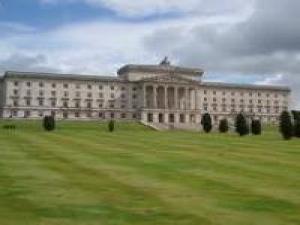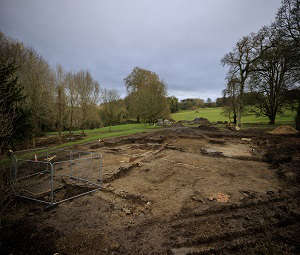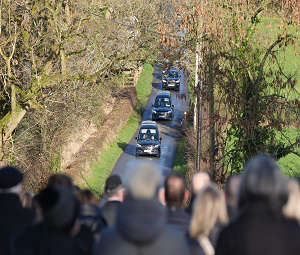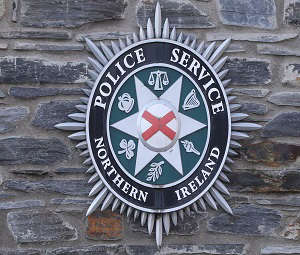
The power to grant or deny freedom of movement to EU nationals within Northern Ireland should be devolved to Stormont following Brexit, peers urged.
The House of Lords EU Committee said the power would be contained in a draft bilateral treaty which should be agreed between the UK and Ireland to protect the 60 billion euro trade between the countries, subject to approval from Europe during exit negotiations.
Peers warned that if the UK Government and the EU institutions failed to pay enough attention to the consequences of Brexit for Ireland, north and south, they risked undermining "the efforts of all those who have worked so hard for peace and good relations across these islands".
They said: "The key aspects of that agreement should include...providing the Northern Ireland Executive with the right to make decisions about the free movement of EU nationals within its jurisdiction."
The remaining 27-country bloc is reluctant to grant the UK free trading rights if restrictions are imposed on the movements of its citizens.
The UK's only European land border is between Northern Ireland and the Republic and the committee said Brexit was a "huge challenge" for Ireland.
The report - Brexit: UK-Irish Relations - called for continuation of the open land border between the UK and Ireland and ease of movement across the sea boundary between Northern Ireland and the rest of the UK.
It also recommended:
:: Maintenance of the Common Travel Area, free movement within it for UK and Irish citizens, and their right to reside and work in both countries;
:: Retention of the right to Irish (and therefore EU) citizenship for the people of Northern Ireland;
:: Reaffirmation by both governments of their commitment to the Good Friday Agreement and continued support for cross-border cooperation;
:: Continued access to EU funding for cross-border projects.
The UK Government has yet to determine whether it will seek to impose restrictions on the free movement of EU citizens to live and work in the UK, the report said.
The document said the introduction of curbs could particularly affect industries already reliant on EU labour including the cross-border agri-food sector.
Other EU member states are seeking assurances about how their citizens already resident in Northern Ireland will be treated.
The Lords report said: "Short of the introduction of full immigration controls on the Irish land border, the solution would either be acceptance of a low level of cross-border movement by EU workers, or allowing Northern Ireland to reach its own settlement on the rights of EU citizens to live and work there."
That would require UK Government approval to an adjustment of the devolution settlement.
It did not appear that Brexit would substantially undermine the legal framework of the 1998 Belfast Agreement, but the lords noted the potential "psychological impact" of Brexit in undermining confidence.
They urged the British Government to enhance the role of the Joint Ministerial Committee for the duration of the talks to ensure that the interests of all devolved nations and regions were properly understood and respected.
A Government spokesman said: "The Government is working to secure a deal that works for the whole of the United Kingdom. Ministers are acutely aware of the deep links between the UK and the Republic of Ireland.
"There is already a common travel area between the two countries, created many years before either was a member of the European Union.
"We are clear we do not want a return to the borders of the past, no unnecessary barriers to trade and no obstacles between Northern Ireland and the rest of the UK. The Government will consider this report carefully and respond fully in due course."


 Remains of 300-year-old building complex unearthed by chance on country estate
Remains of 300-year-old building complex unearthed by chance on country estate
 Fresh Met Office warning for icy conditions across Northern Ireland
Fresh Met Office warning for icy conditions across Northern Ireland
 Community still in shock over deaths of father and son, funeral told
Community still in shock over deaths of father and son, funeral told
 Hugo Duncan dedicates MBE honour to late mother who raised him on her own
Hugo Duncan dedicates MBE honour to late mother who raised him on her own
 Police concern over large gathering of youths at Belfast interface
Police concern over large gathering of youths at Belfast interface